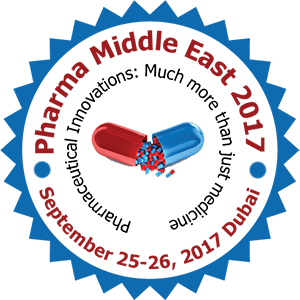
Abdullatif Azab
Eastern Plants Company, Israel
Title: Plants with anti-inflammatory activity in Palestinian ethnomedicine: Past, present & future
Biography
Biography: Abdullatif Azab
Abstract
Plants are by humans used for medicinal purposes since the dawn of humanity. Among these, plants with anti-inflammatory activity are well known to most cultures, especially the Palestinian traditional medicine which is known for its vastness. However, this ethnomedicine used many plants of different genera to treat inflammations. The methods of herbal treatment were documented or passed verbally through generations. Among these plants, there are well known to other cultures such as Malva sylvestris, Micromeria fruticosa and Salvia officinalis. Expectedly, modern, published research approves this traditional knowledge (Benso, B. et al, 2016; Abu Gharbieh, E. et al., 2013 and Baricevic, D. et al, 2001, respectively). But these are aromatic plants, with very pleasant odors, that are expected to have medicinal activies. Carob (Ceratonia siliqua) is a very well known tree for Palestinian culture, and its very impotrant nutritional resource. Its anti-inflammatory capacities were known and used for centuries, especially against mouth and throat inflammations. But strangely and interestingly enough, the anti-inflammatory of this proven activity was studied just in the last few years (Lachkar, N., et al., 2016; Rtibi, R., et al., 2016). Our current research focuses of other plants that are known to Palestinian ethnomedicine for having anti-inflammatory and other medicinal activities. Currently, we have studied three plants and the results indicate that at least one of them has proven anti-inflammatory activity. Our list includes other 16 plants that were reported to us by local Palestinian people as having such activity. These plants have three common properties: 1) Their anti-inflammatoty potential was never studied and published before. 2) The chemical compositions of all of them are either partially or completely unkown. 3) All of them are known to Palestinian ethnomedicine as having medicinal potential. We will present some plants that Palastenian ethnomedicine use to treat inflammations, published, being studied and with future research plants.

